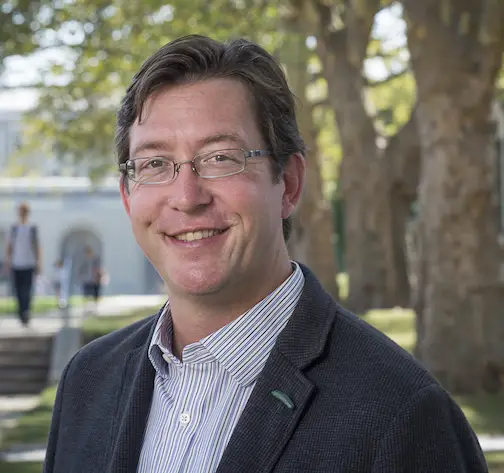
Better Courseware a Gateway to STEM Success
Community colleges to use and improve CMU adaptive courseware
Media Inquiries
A grant from the National Science Foundation will support a partnership between the State University of New York (SUNY), Maryland community colleges and Carnegie Mellon University on a project to improve STEM courses. Using CMU's Open Learning Initiative(opens in new window) (OLI) adaptive courseware, the schools aim to reduce costs and improve student outcomes for a broad range of gateway science, technology, engineering and math courses. This project, called Community-engaged Courseware for STEM Success (CCSS), will involve faculty and staff at 16 community colleges and impact thousands of learners.
Gateway courses are general education courses that students are required to take to continue in a field of study, such as anatomy and physiology or general biology. If students fail these courses, their academic trajectory could be impacted for years, and high failure rates contribute to equity gaps throughout and beyond post-secondary education.
Norman Bier�(left), executive director of CMU's Simon Initiative(opens in new window) and director of OLI, said that making sure students succeed in these courses is crucial for training a talented and diverse STEM workforce."If students don't do well in these courses, it can put them on a bad path," Bier said. "If they fail a course, it may not be offered again until the next fall, re-enrolling could be expensive. It's much better for the student if we are able to help them stay on track."
Incorporating OLI courses into community college curriculums could help do that.
Bier and his team at CMU have successfully used OLI to improve learning outcomes in the past. The courseware, which has evolved over two decades, combines an interactive textbook with learning activities, assessments and rich simulations, and includes a robust analytics dashboard that teachers and students can use to assess their learning in real time. OLI currently has 14 STEM courses, including statistics, engineering, computer science, mathematics, biology, chemistry, physics, anatomy & physiology, and robotics. The CCSS project would vastly upscale the number of students enrolled in these classes, improve user experience, and help learning science researchers better understand the way students learn in STEM classes.
Nicole Simon, a professor at Nassau Community College in New York, is leading efforts from the SUNY side. An expert in using educational technology in STEM courses, she said she is excited about using OLI's data-driven approach to teaching and learning.
"OLI gives students flexibility in learning and faculty more avenues to offer resources for students.” —�Nicole Simon
"CCSS will provide greater support for faculty to engage in data-driven customization," Simon said. "Teachers can get instant information from their students, which can be used in the course and contribute to new discoveries in learning research. OLI gives students flexibility in learning and faculty more avenues to offer resources for students."
The first phase of the project is to recruit faculty at SUNY and Maryland to adopt and improve the OLI courseware. The faculty will be paid in release time or stipend and will receive support from OLI learning engineers and professional development workshops.
Simon will lead faculty recruitment efforts at SUNY, and Pamela Pape-Lindstrom, dean of Science, Technology, Engineering and Mathematics at Harford Community College (HCC) will do the same on the Maryland side.
"This is a great opportunity for our HCC faculty and students. Faculty are excited to see the direct impact of their courseware customizations on student success," Pape-Lindstrom said.
CCSS will also examine the policy implications of educational technology adoption in Maryland and New York and make recommendations for how the states can eliminate roadblocks to support wide-scale adoption of resources like OLI.
